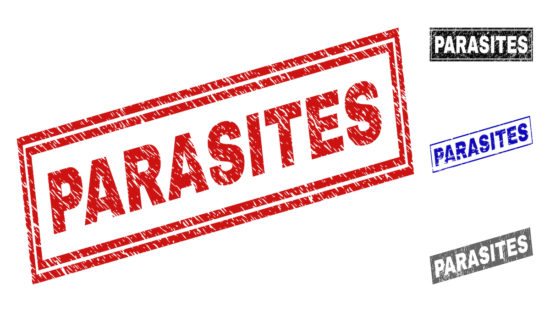FAO meeting shines light on foodborne parasites

The UN Food and Agriculture Organization (FAO) is continuing efforts to update scientific advice on foodborne parasites.
A meeting at FAO’s headquarters in Rome in May brought together scientists to review the latest data on foodborne protozoan parasites, such as Cryptosporidium, Giardia, and Toxoplasma gondii.
They looked at data on disease burden, food attribution, and detection strategies, to identify the most important parasites in foods, their characteristics, human and food exposure and their risk characteristics.
High‑risk foods include fresh produce, shellfish, dairy, juices, and ready‑to‑eat items.
Scientists said foodborne transmission of parasites is complex. Delay in symptom onset and chronic sequelae make detection and source attribution difficult.
Key parasites
Parasites identified as the most important include Cryptosporidium, Cyclospora cayetanensis, Entamoeba histolytica, Giardia duodenalis, Toxoplasma gondii, and Trypanosoma cruzi. Other parasites will be mentioned in the full report.
The environmentally robust life stages, known as oocysts and cysts, are resistant to harsh environmental conditions and to many disinfectants. Cryptosporidium, Entamoeba histolytica, and Giardia duodenalis are infectious to humans upon excretion by a previously infected host but Cyclospora cayetanensis oocysts require days to weeks to sporulate and become infectious.
Seasonal trends in rates of cyclosporiasis and cryptosporidiosis may be because of environmental factors, consumer behaviors, and food availability.
Foods may become contaminated during irrigation, pesticide application, or processing with water containing infectious cysts and oocysts, or by direct or indirect contact with animal or human feces on hands, surfaces or other materials.
Foodborne transmission routes of Toxoplasma gondii include consumption of raw or undercooked meat, fresh produce, and unpasteurized dairy. Outbreaks of Trypanosoma cruzi from unpasteurized products, like fruit juice and sugar cane syrup, have only been reported in South America.
Recommendations include that education, training, and capacity building on foodborne parasites should be a priority. Also important is improved sanitation and hygiene.
Experts said detection remains inconsistent, with few standardized testing methods across food types. Advances in molecular tools show promise, but reliable viability assays are scarce. They added there needs to be a commitment by national authorities and regulatory bodies to consistent and transparent reporting of cases and outbreaks.
Staying informed
A Charles Sturt University parasitology and food safety expert contributed to the debate.
Shokoofeh Shamsi, Professor in Veterinary Parasitology, said parasites are responsible for a significant portion of foodborne illnesses.
“The focus is on vulnerable populations and global equity in food safety solutions with the goal to support countries in developing robust food control systems that protect consumers from foodborne parasitic infections, especially those most at risk.”
Song Liang, from the University of Massachusetts Amherst, also participated in the meeting.
In other news, FAO and the World Health Organization (WHO) are hosting a social media talk show on July 7 about accessing accurate food safety information online.
The event will be across FAO channels such as LinkedIn, YouTube, and Facebook.
Moderator Giuseppe di Chiera, food standards development and communication specialist with the Codex Alimentarius Secretariat, will be joined by Lourdes Orlando, a professional officer with FAO’s Agrifood Systems and Food Safety Division, and Irene Casado, a communications officer who works on FAO’s social media output.
Juliana de Oliveira Mota, a WHO scientist in the Nutrition and Food Safety Department, and Tunga Namjilsuren, unit head, Health Information and Advocacy, will also be available to answer questions on food safety concerns and how to stay informed.
(To sign up for a free subscription to Food Safety News, click here)
Source: https://www.foodsafetynews.com/2025/07/fao-meeting-shines-light-on-foodborne-parasites/
Anyone can join.
Anyone can contribute.
Anyone can become informed about their world.
"United We Stand" Click Here To Create Your Personal Citizen Journalist Account Today, Be Sure To Invite Your Friends.
Before It’s News® is a community of individuals who report on what’s going on around them, from all around the world. Anyone can join. Anyone can contribute. Anyone can become informed about their world. "United We Stand" Click Here To Create Your Personal Citizen Journalist Account Today, Be Sure To Invite Your Friends.
LION'S MANE PRODUCT
Try Our Lion’s Mane WHOLE MIND Nootropic Blend 60 Capsules
Mushrooms are having a moment. One fabulous fungus in particular, lion’s mane, may help improve memory, depression and anxiety symptoms. They are also an excellent source of nutrients that show promise as a therapy for dementia, and other neurodegenerative diseases. If you’re living with anxiety or depression, you may be curious about all the therapy options out there — including the natural ones.Our Lion’s Mane WHOLE MIND Nootropic Blend has been formulated to utilize the potency of Lion’s mane but also include the benefits of four other Highly Beneficial Mushrooms. Synergistically, they work together to Build your health through improving cognitive function and immunity regardless of your age. Our Nootropic not only improves your Cognitive Function and Activates your Immune System, but it benefits growth of Essential Gut Flora, further enhancing your Vitality.
Our Formula includes: Lion’s Mane Mushrooms which Increase Brain Power through nerve growth, lessen anxiety, reduce depression, and improve concentration. Its an excellent adaptogen, promotes sleep and improves immunity. Shiitake Mushrooms which Fight cancer cells and infectious disease, boost the immune system, promotes brain function, and serves as a source of B vitamins. Maitake Mushrooms which regulate blood sugar levels of diabetics, reduce hypertension and boosts the immune system. Reishi Mushrooms which Fight inflammation, liver disease, fatigue, tumor growth and cancer. They Improve skin disorders and soothes digestive problems, stomach ulcers and leaky gut syndrome. Chaga Mushrooms which have anti-aging effects, boost immune function, improve stamina and athletic performance, even act as a natural aphrodisiac, fighting diabetes and improving liver function. Try Our Lion’s Mane WHOLE MIND Nootropic Blend 60 Capsules Today. Be 100% Satisfied or Receive a Full Money Back Guarantee. Order Yours Today by Following This Link.






